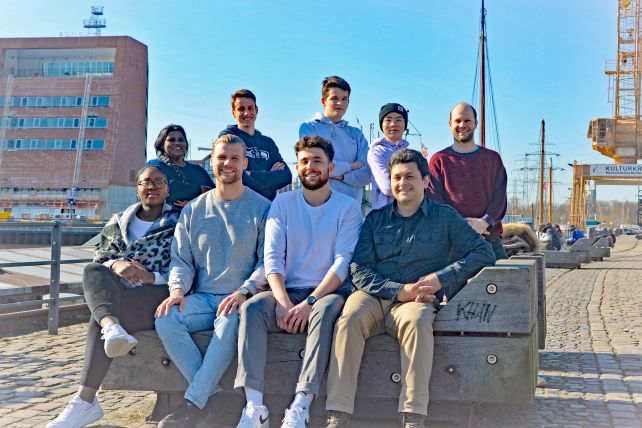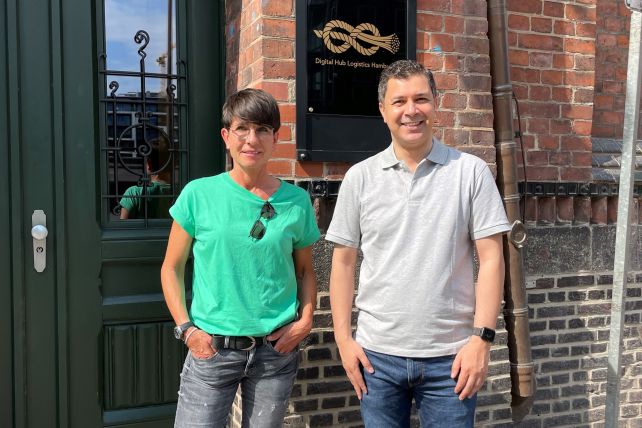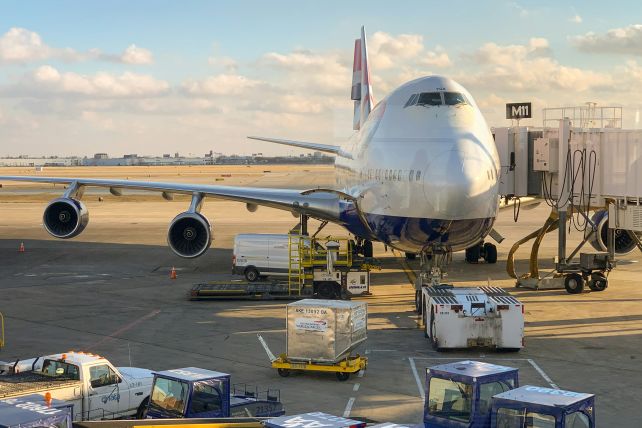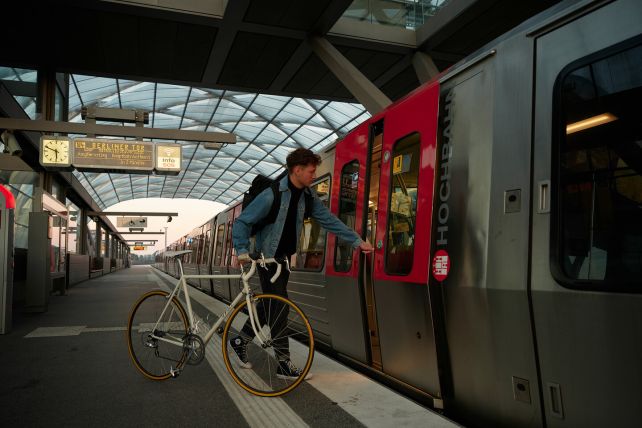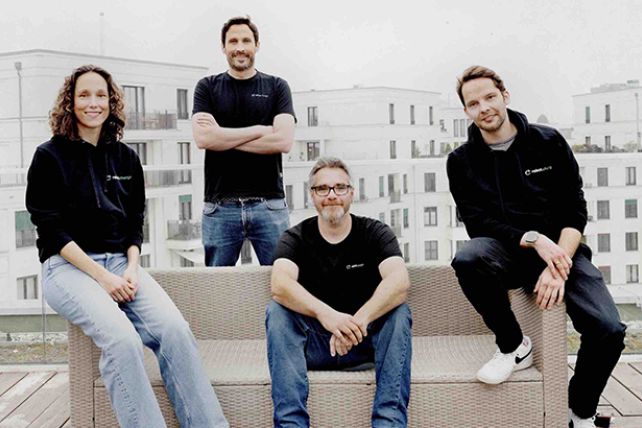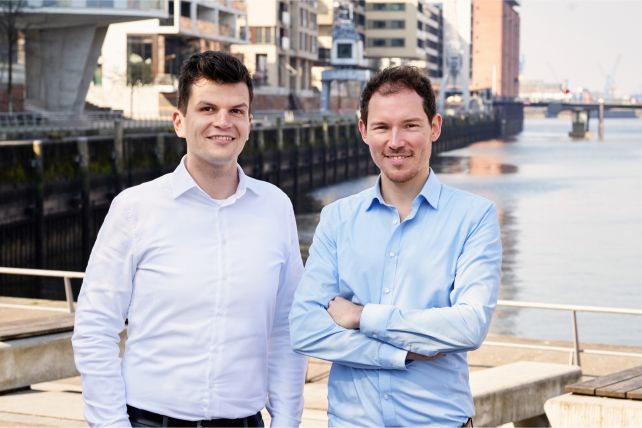Almost everyone who has ever travelled across the ocean by plane will be familiar with it: endless tiredness, exhaustion and headaches. The fast flight to other time zones has its price. It is jet lag that frequent flyers often suffer from, and which significantly limits their performance. The Hamburg-based startup jetlite has developed an antidote that helps maintain fitness after a long-haul flight.
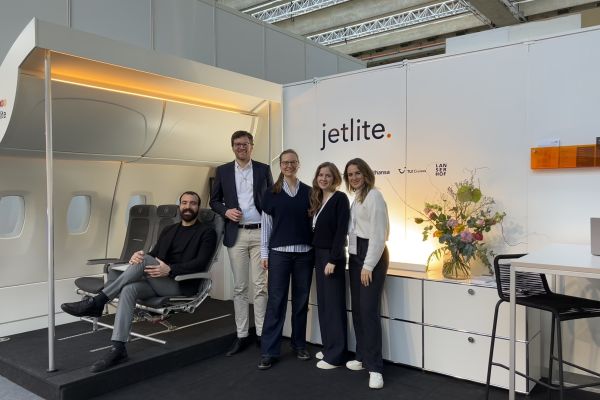
Light influences melatonin levels
jetlite founder Achim Leder has already researched the problem in his dissertation at the University of Wuppertal and found a solution. The key is light. "It is the most important stimulus for the internal clock," states Leder. "The wavelengths and intensities of light influence the body's hormonal response and therefore our internal clock. One hormone that is responsible for regulation is melatonin, which is also known as the sleep hormone." And this hormone can be influenced by smart lighting.
jetlite has developed a chronobiologically effective lighting control system that is designed to have a beneficial effect on long journeys by plane. It is based on an algorithm. This regulates the lighting on board according to the flight times, duration and direction as well as the time zones travelled. Daylight and seasons at the departure and destination are also incorporated into the database. In this way, numerous lighting scenarios can be customised to the passengers' biorhythms, making jet lag much more bearable in the end. "Blue light inhibits the production of the body's own hormone melatonin, making travellers feel more alert," explains Leder. Light with a stronger red component, on the other hand, leads to more fatigue. Coordinated control of the parameters when crossing time zones could make the transitions more tolerable for the human organism.
Jet lag cannot be completely prevented, but it can at least be greatly reduced, jetlite promises. "The main aim is to make travelling more pleasant and to improve the health and well-being of passengers," explains Achim Leder.
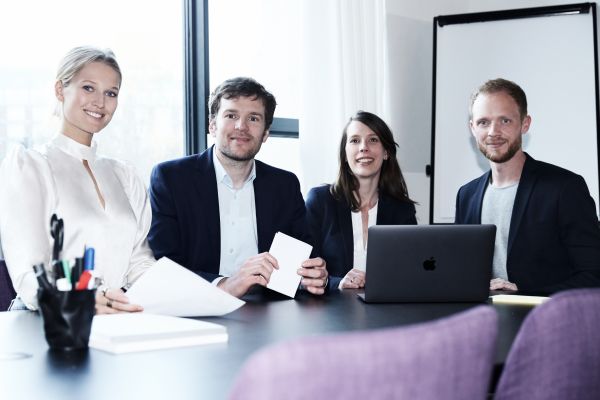
Lufthansa and Finnair already have jetlite on board
The jetlite lighting system is now an increasingly popular product in the aviation industry. Leder and his five-strong team have already equipped several fleets with jetlite for Lufthansa. Both Airbus and Boeing aircraft have been fitted with the chronobiological lighting technology. Finnair is also a customer, as is TUI Cruises, where the system is used in cruise ships. jetlite has also already realised its first projects in offices, where work is often carried out under artificial light. Healthcare, public transport, the lighting industry and building automation are the sectors in which the startup wants to expand in the future.
Leder came up with the idea of founding his own startup back in 2015 when he was invited by the Federal Ministry for Economic Affairs and Energy to present his research. Together with economist Felix Brüggemann, Lufthansa pilot and engineer Tanja Becker, the startup began in 2017 in the Airbus BizLab. The team received initial funding from the German government's EXIST start-up grant and from the InnoRampUp funding programme of the Hamburgische Investitions- und Förderbank (IFB). In the very first year of its foundation, jetlite won the German Aviation Innovation Award. A year later, Leder and his team were winners of the German Innovation Award. And in 2019, they succeeded at the Hamburg Innovation Award.
World-famous model Toni Garrn is also named as a co-founder of the company, which is more than just a PR stunt. In a special edition of the Bild newspaper distributed to all households, she talked about her experiences with jet lag in an interview. Achim Leder read this and contacted her to recruit her for jetlite. Her mother, an economist, got in touch first and gave her consent after intensive questioning. As a frequent flyer and therefore a test subject, Toni Garrn helped with product development.

Corona was the biggest challenge
"jetlite established itself as a small startup in the aviation industry, a very complex sector with high barriers to entry, and created a high level of brand awareness within a short space of time," summarises Leder. "The biggest challenges in the company's history so far have been the coronavirus crisis and the general economic situation in recent years. Within just four weeks of the start of the pandemic, jetlite lost more than 72 per cent of its order volume and a further 20 per cent was postponed indefinitely." With financial help from the city of Hamburg and the federal government's coronavirus aid, the startup was able to survive the slump in the industry and acquire new projects outside the aviation industry.
Since 2022, jetlite has been leading a nationwide consortium of industrial companies and research institutions working on the development of an IoT industry standard for chronobiologically effective lighting in the mobility sector on behalf of the Federal Ministry of Digital and Transport. The Chronolite project is being funded by the federal government with around four million euros. "The main objective is to create a Chronolite platform that adapts IoT-supported lighting units to chronobiological requirements and personalised user preferences such as the individual's internal clock," according to the project website. The programme will run until the end of 2024.
In Finkenwerder, with a view of the harbour and close to the Airbus production halls, jetlite has chosen a location that promises potential for new markets. "As jetlite's home city, Hamburg plays a decisive role in the company's development," states Achim Leder.

-
Public financing in Hamburg
As a founder in Hamburg, you can access an attractive range of advisory services and an excellently developed funding landscape. Various public funding programmes support your startup financially and with advice, depending on the development phase of your company.
-
Support programmes for startups
In addition to the IFB's public funding programmes, Hamburg offers founders an excellent infrastructure for further financial support. Numerous offers such as startup consulting, accelerator and incubator programmes enable startups to grow and drive innovative ideas forward.


